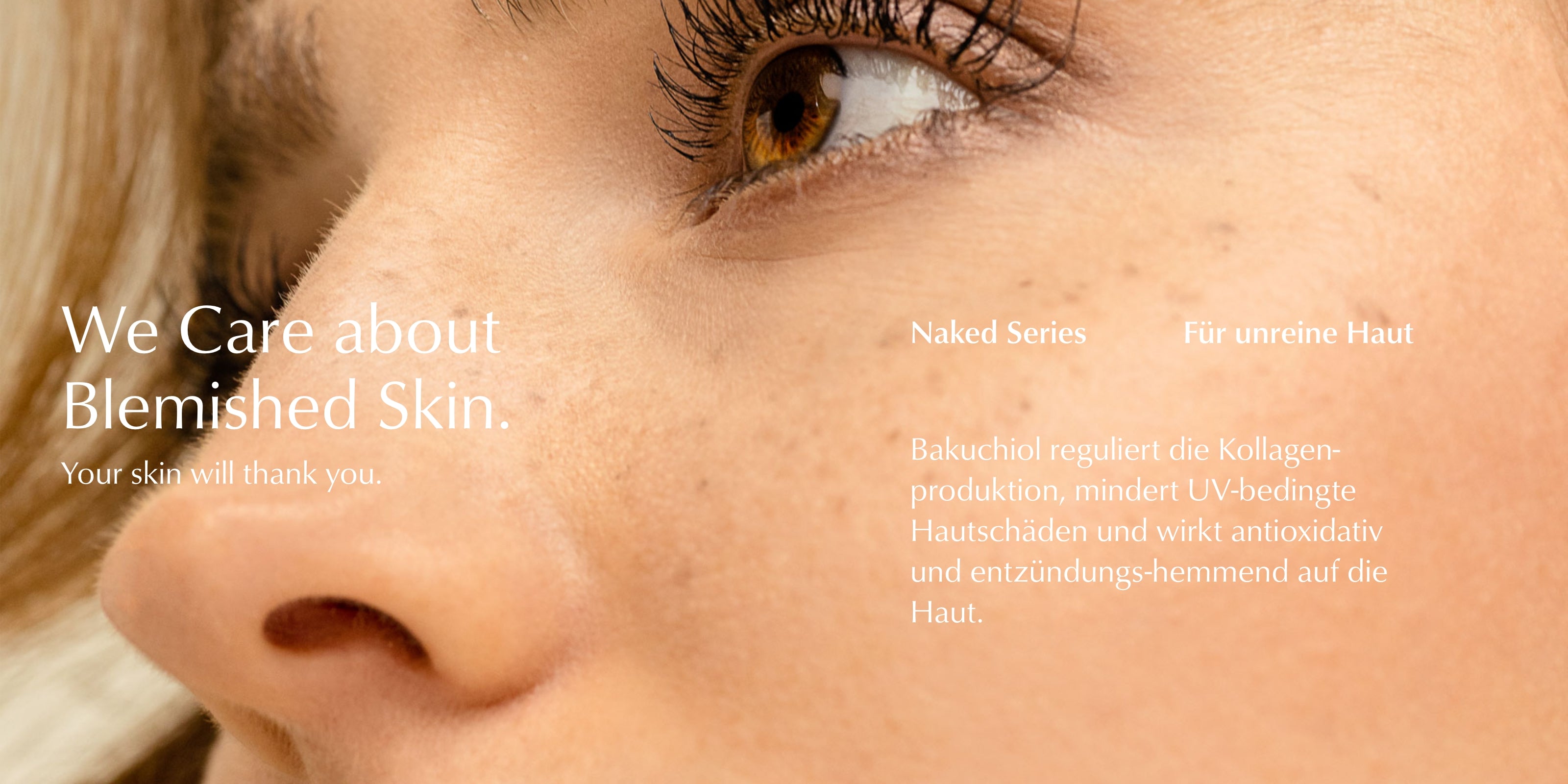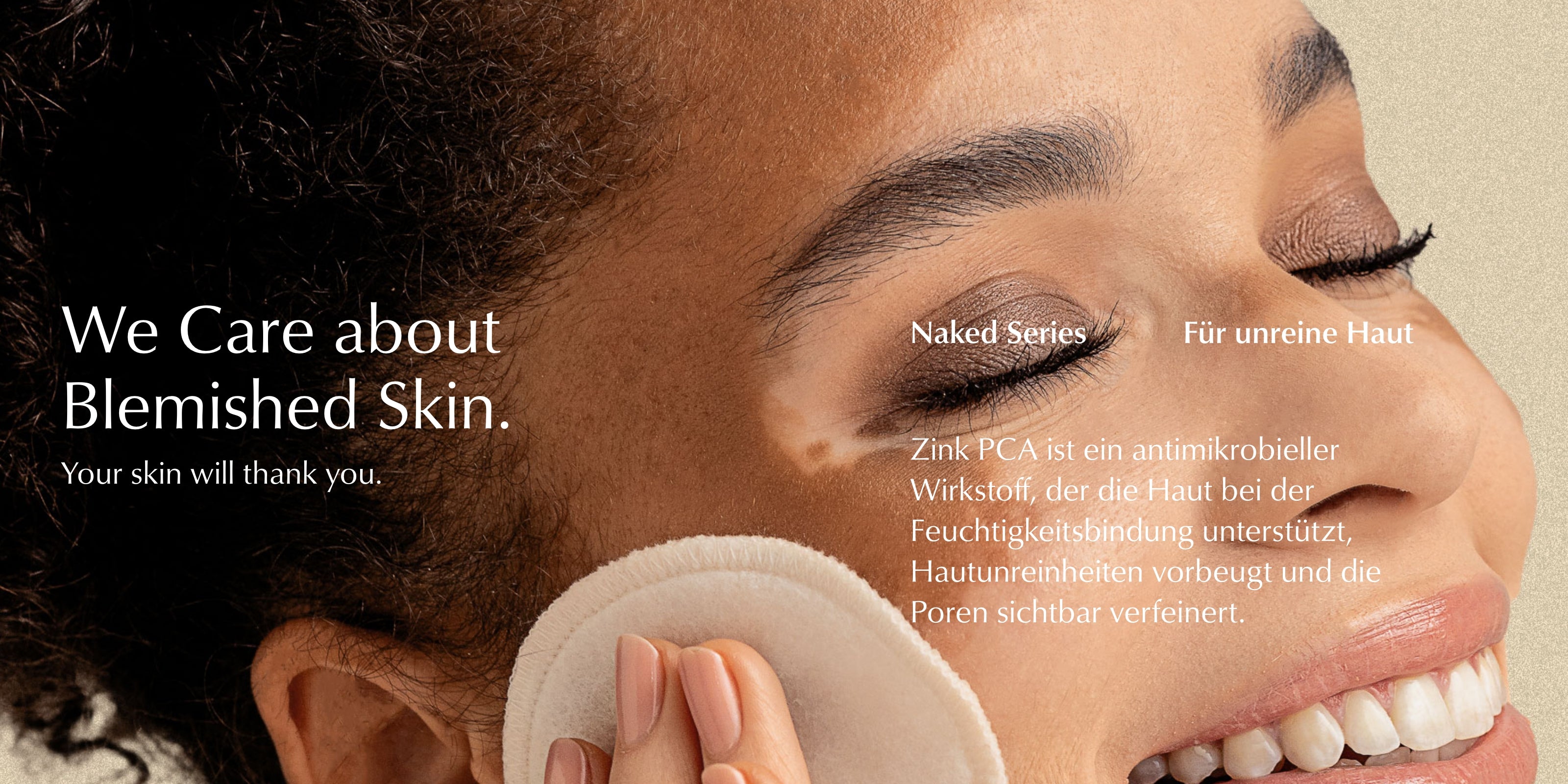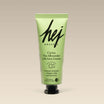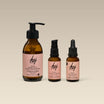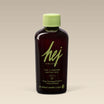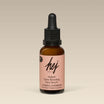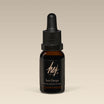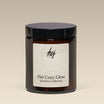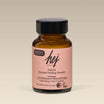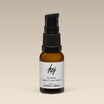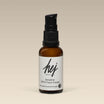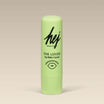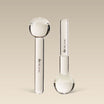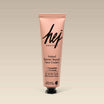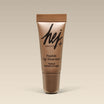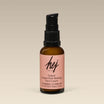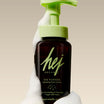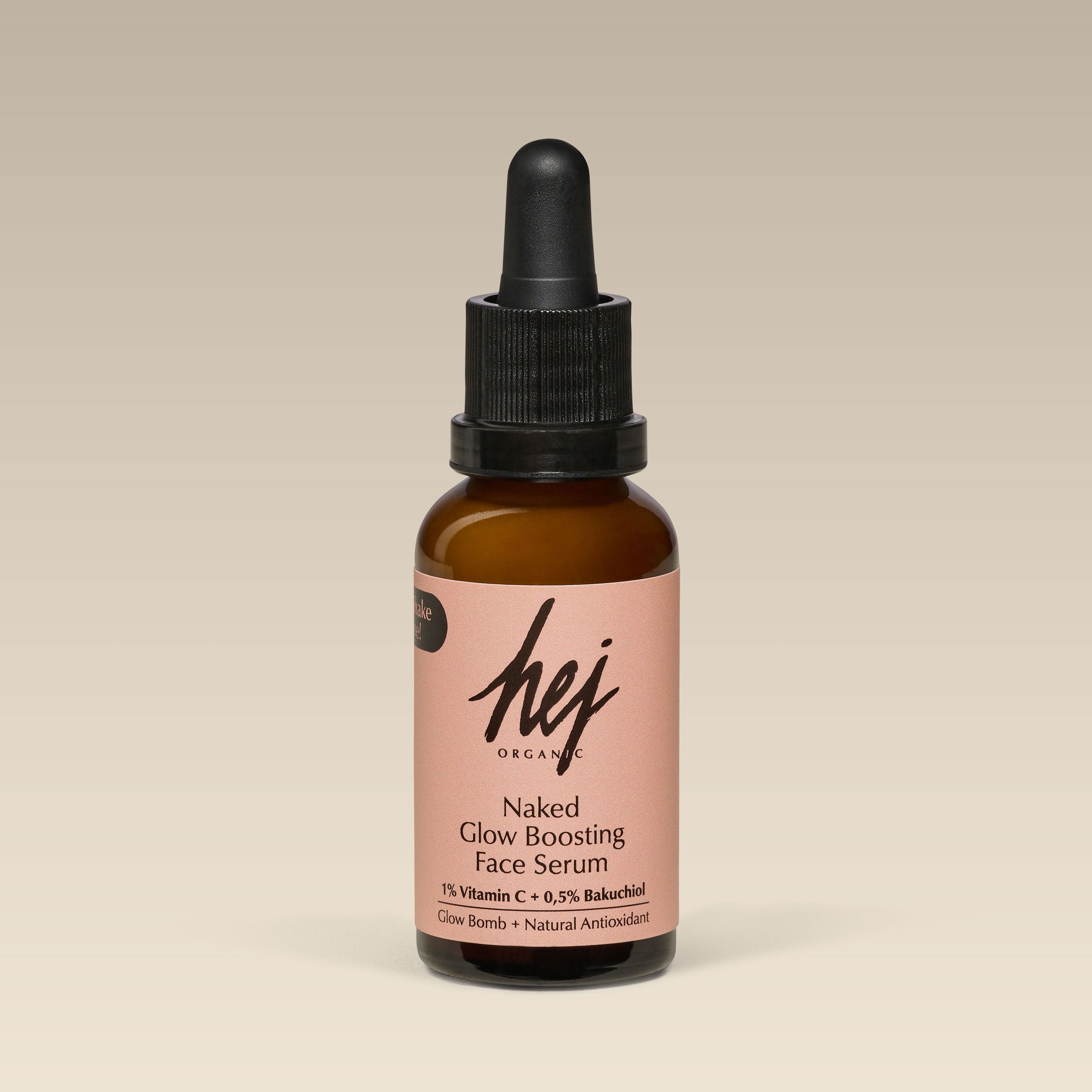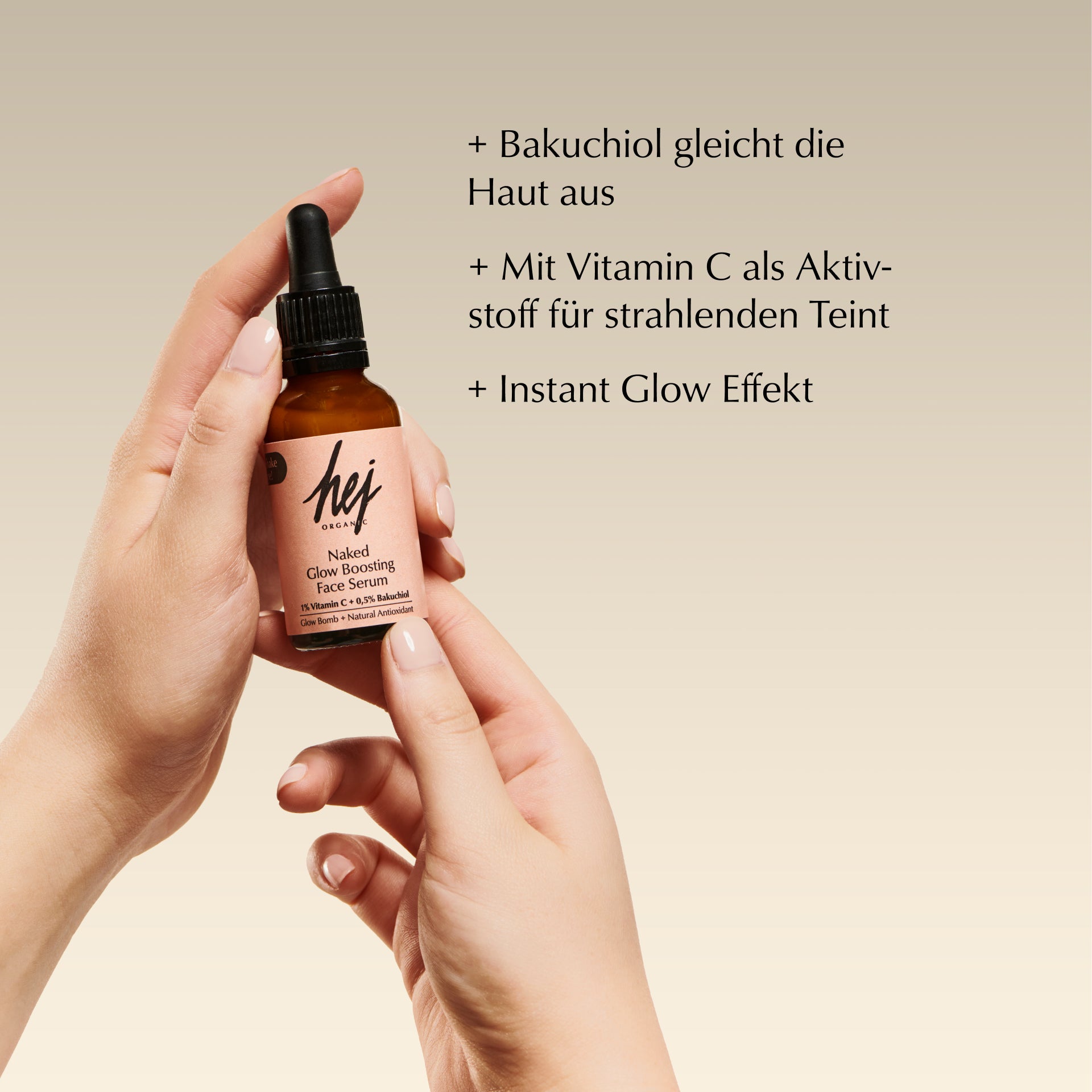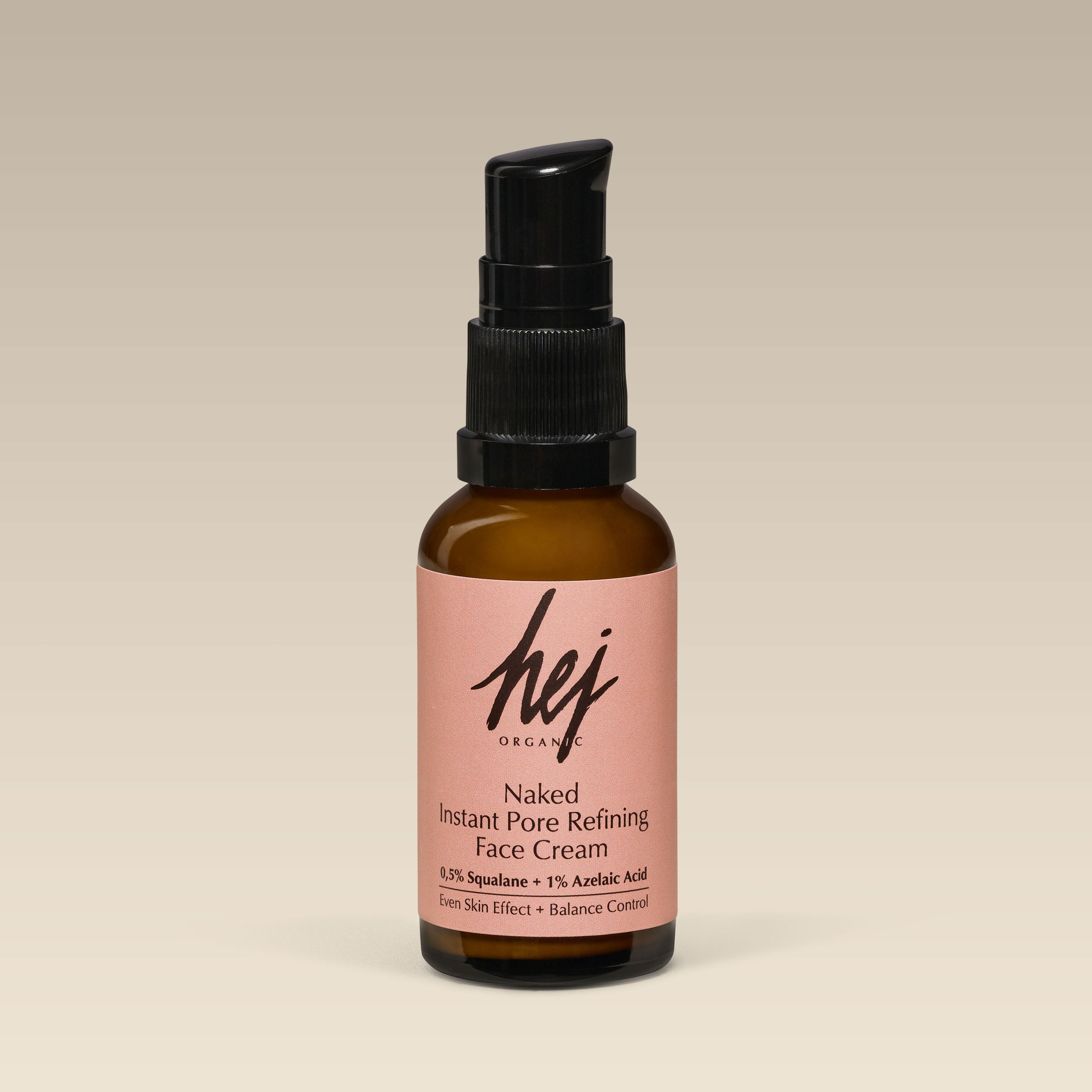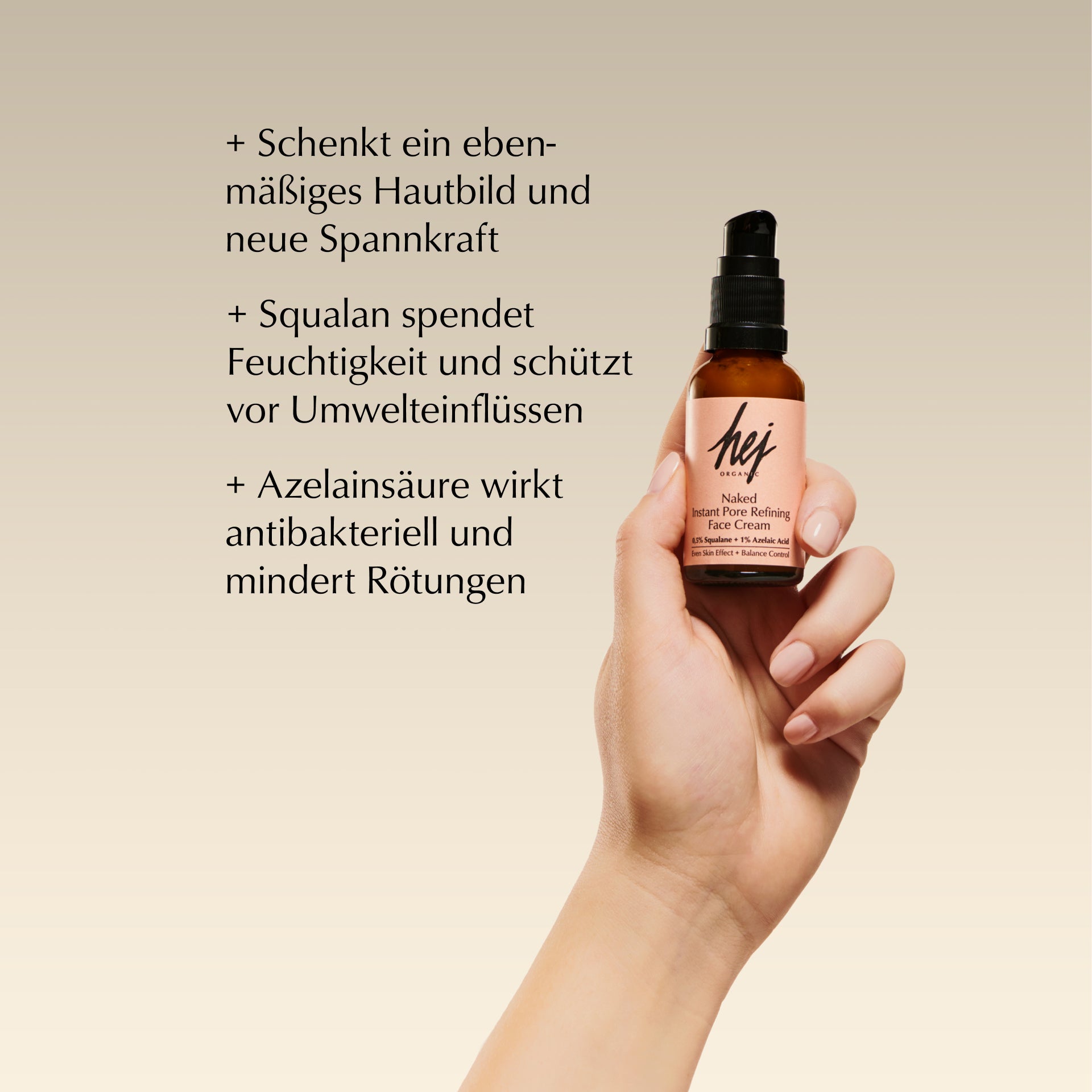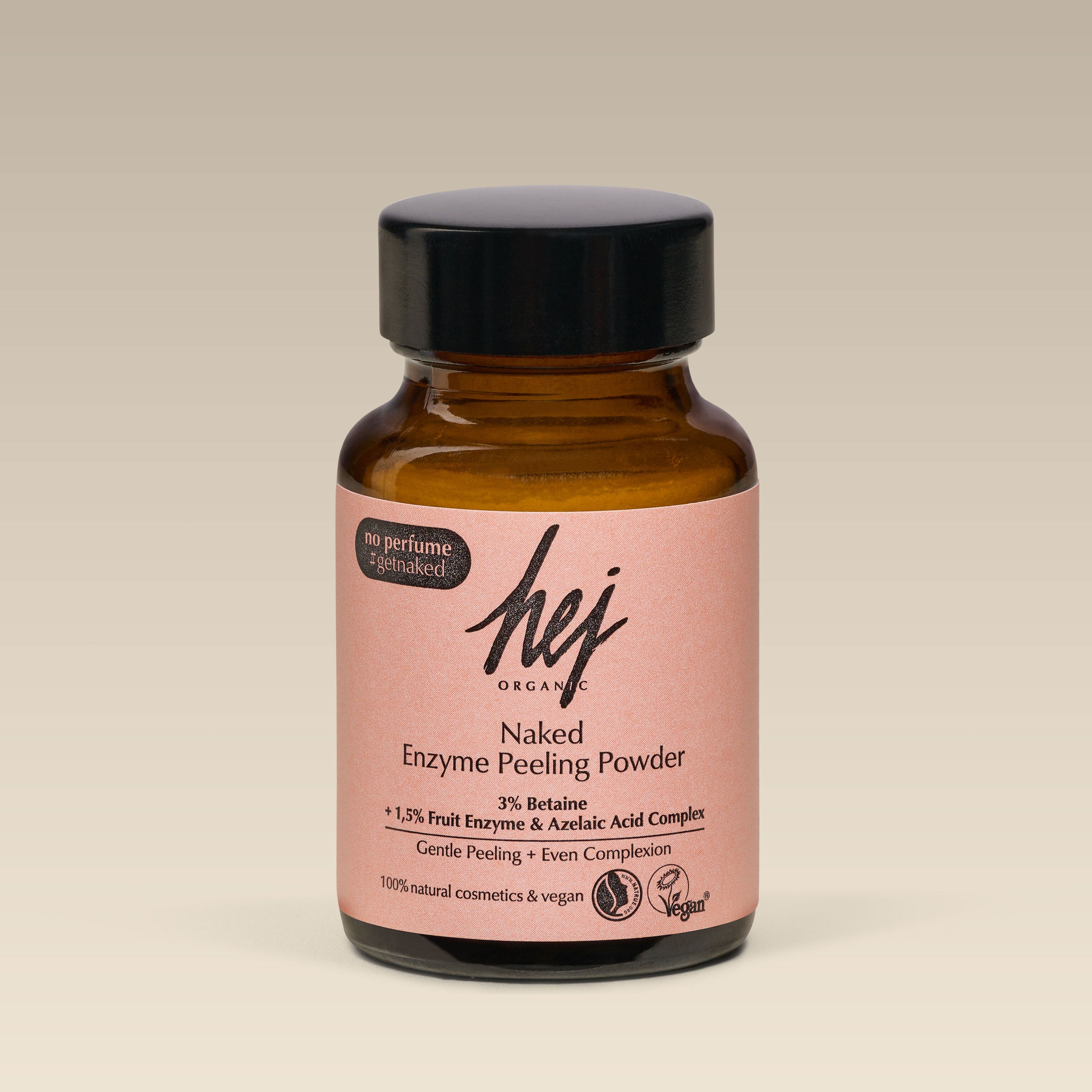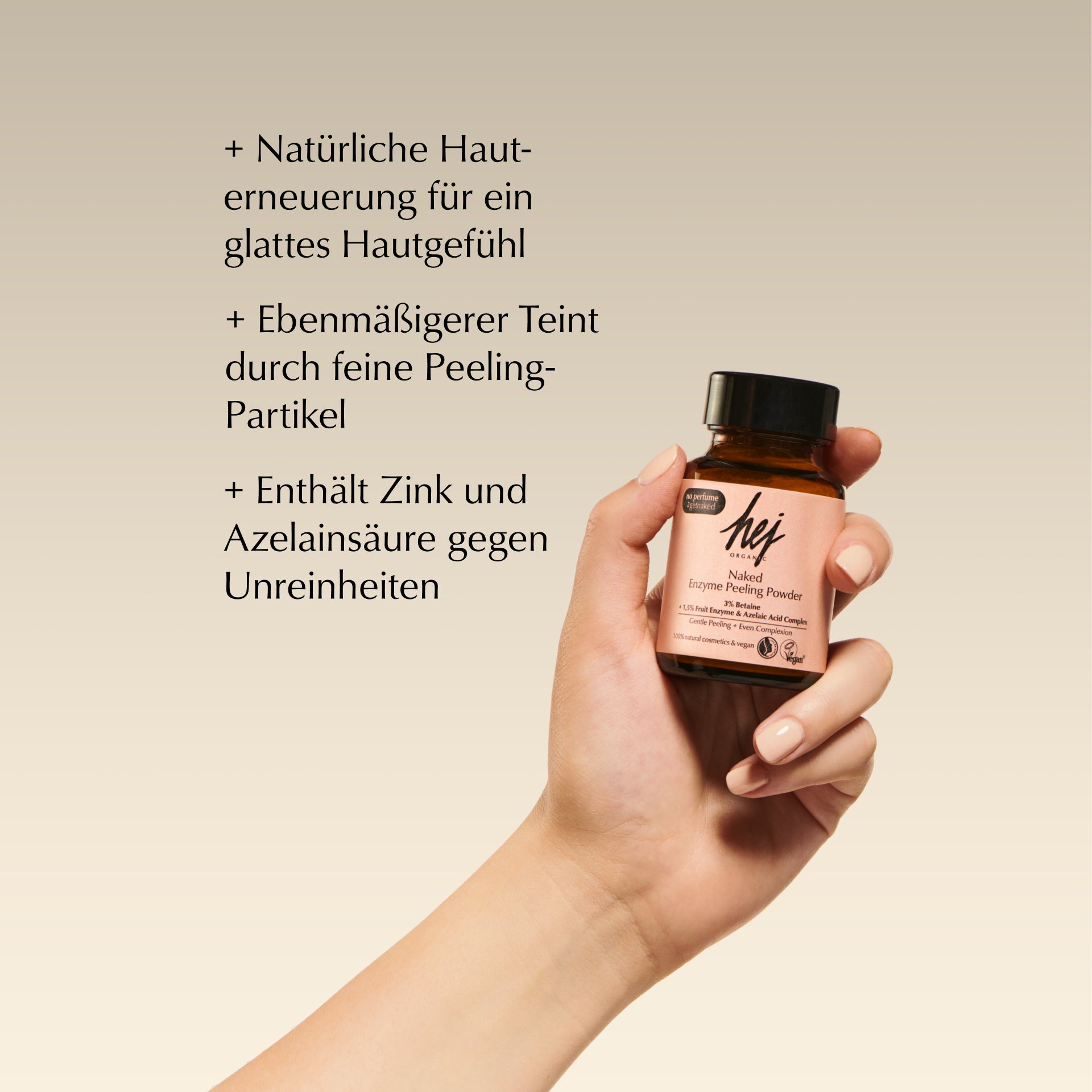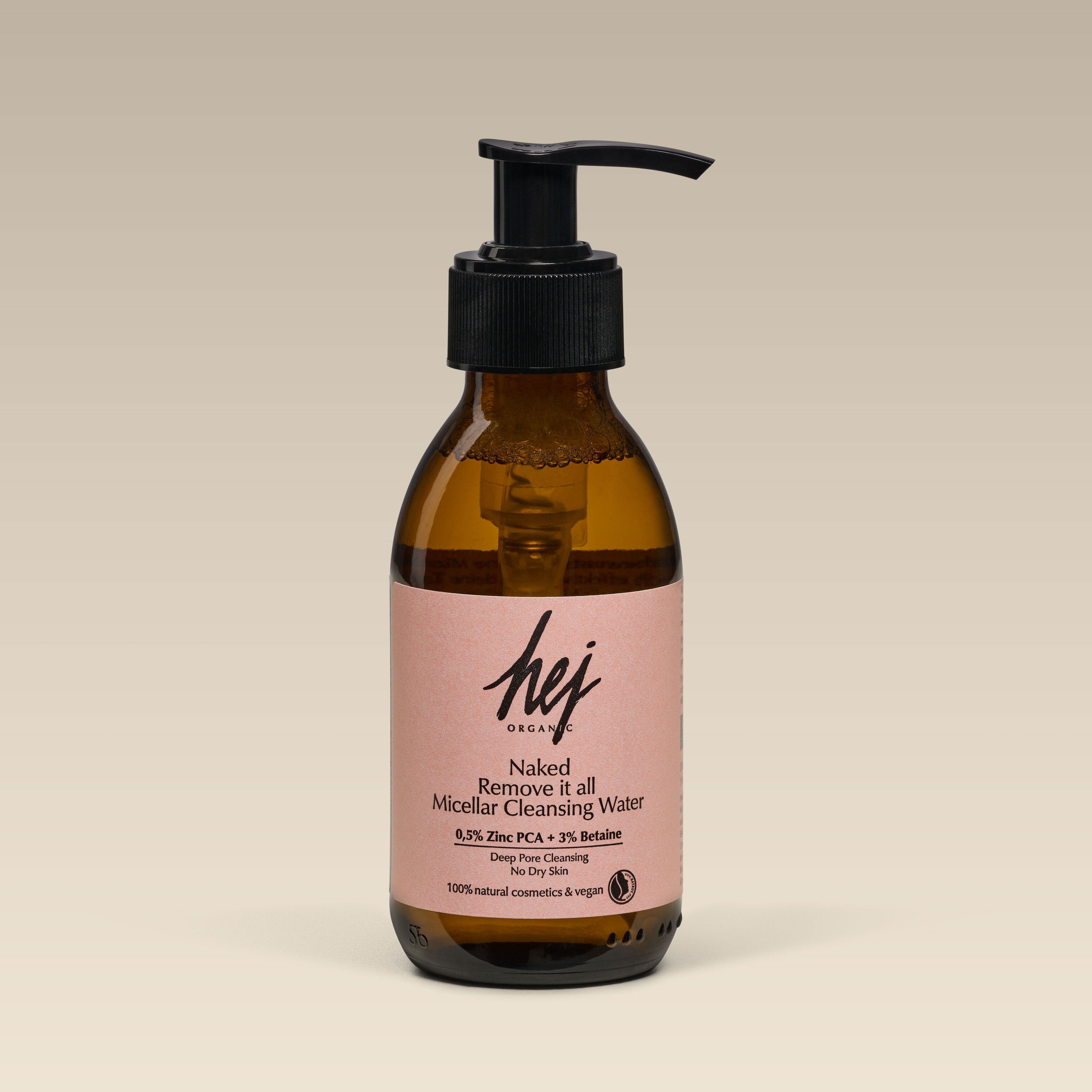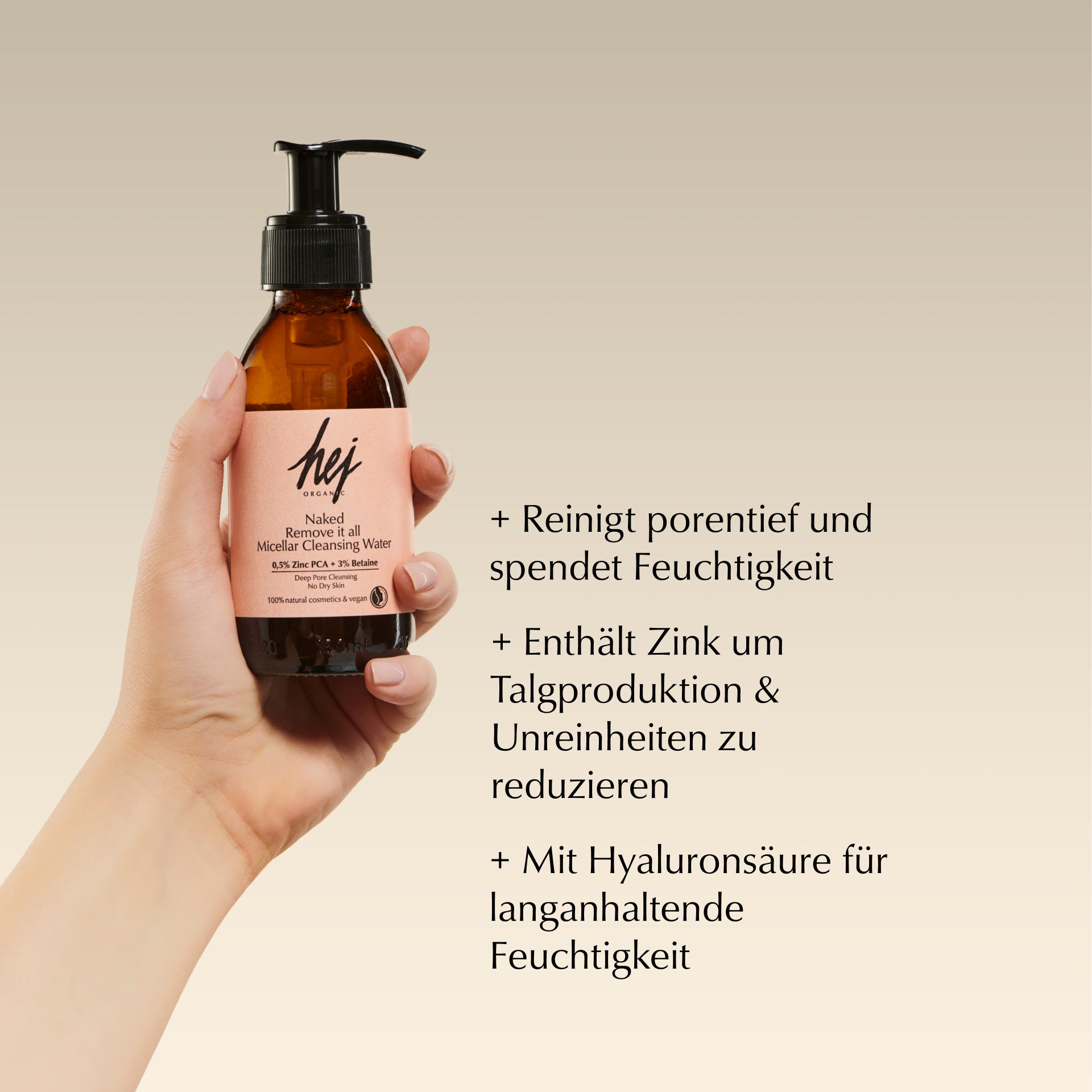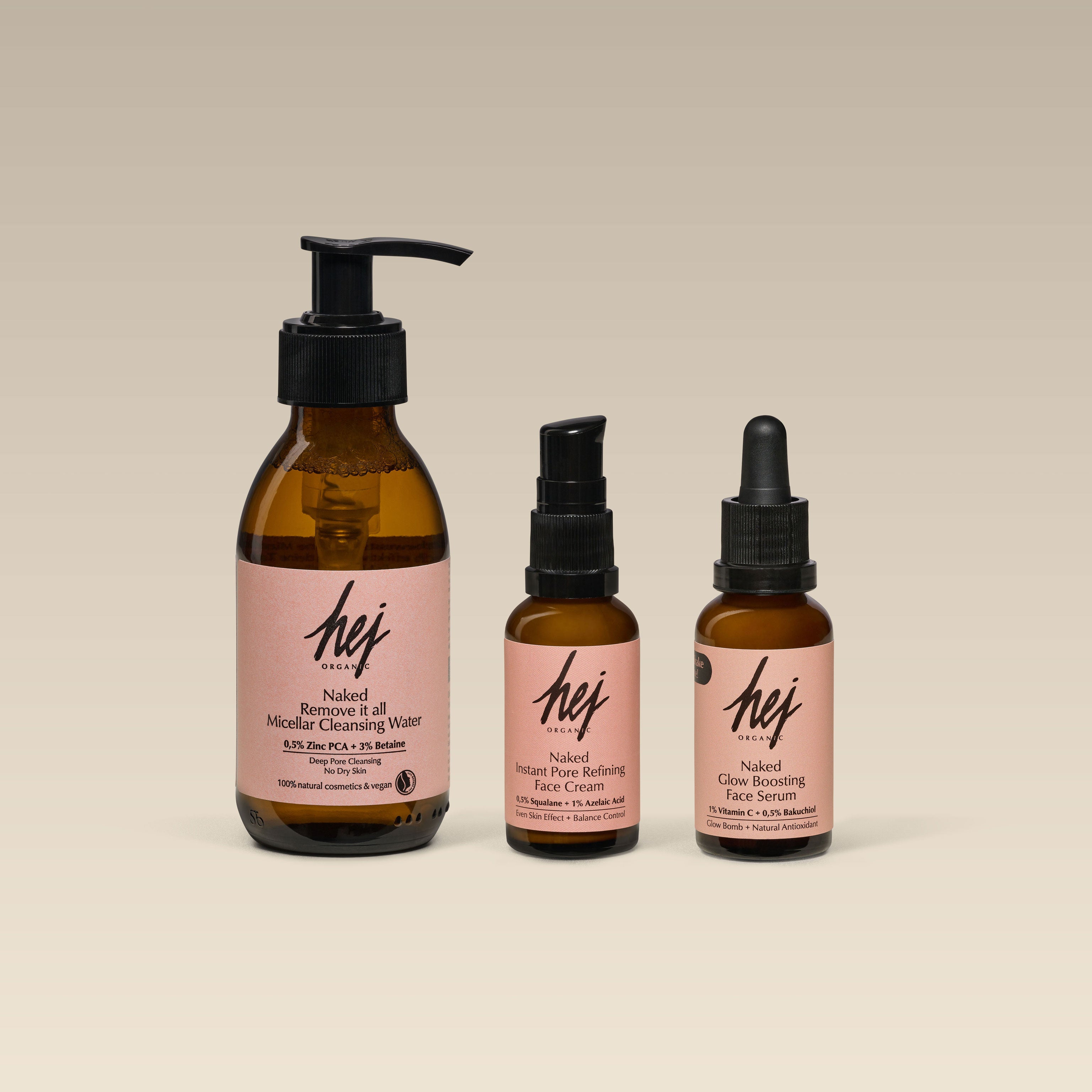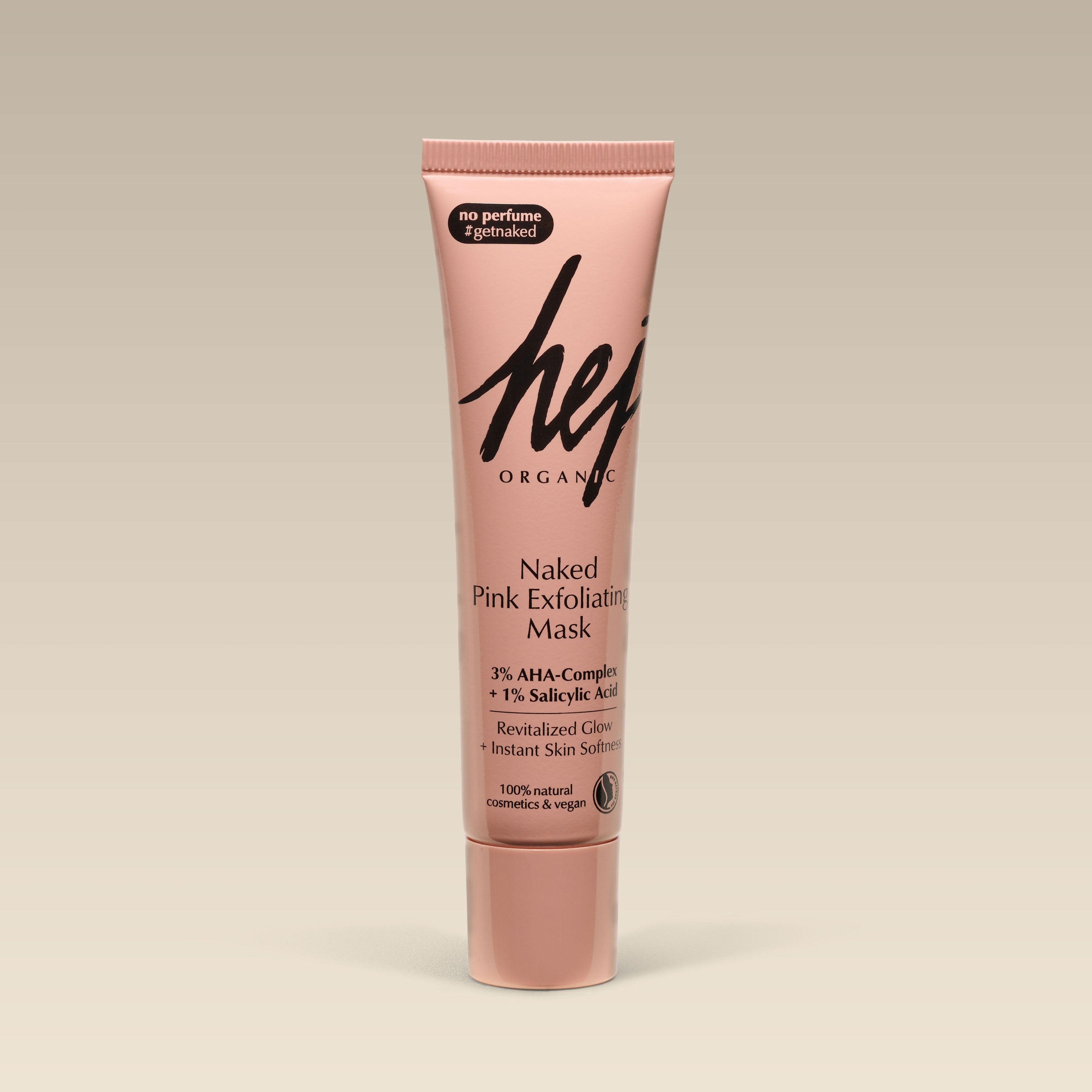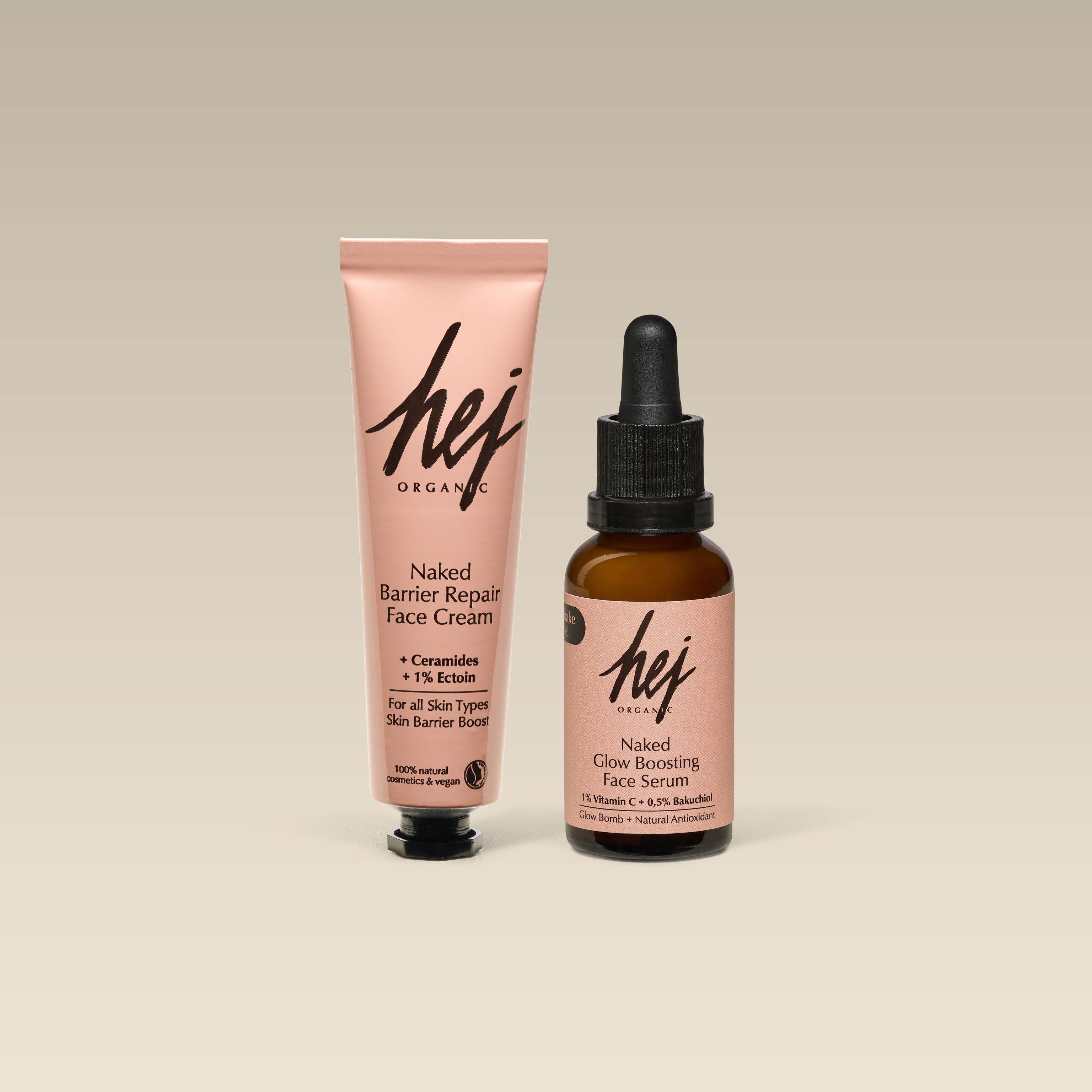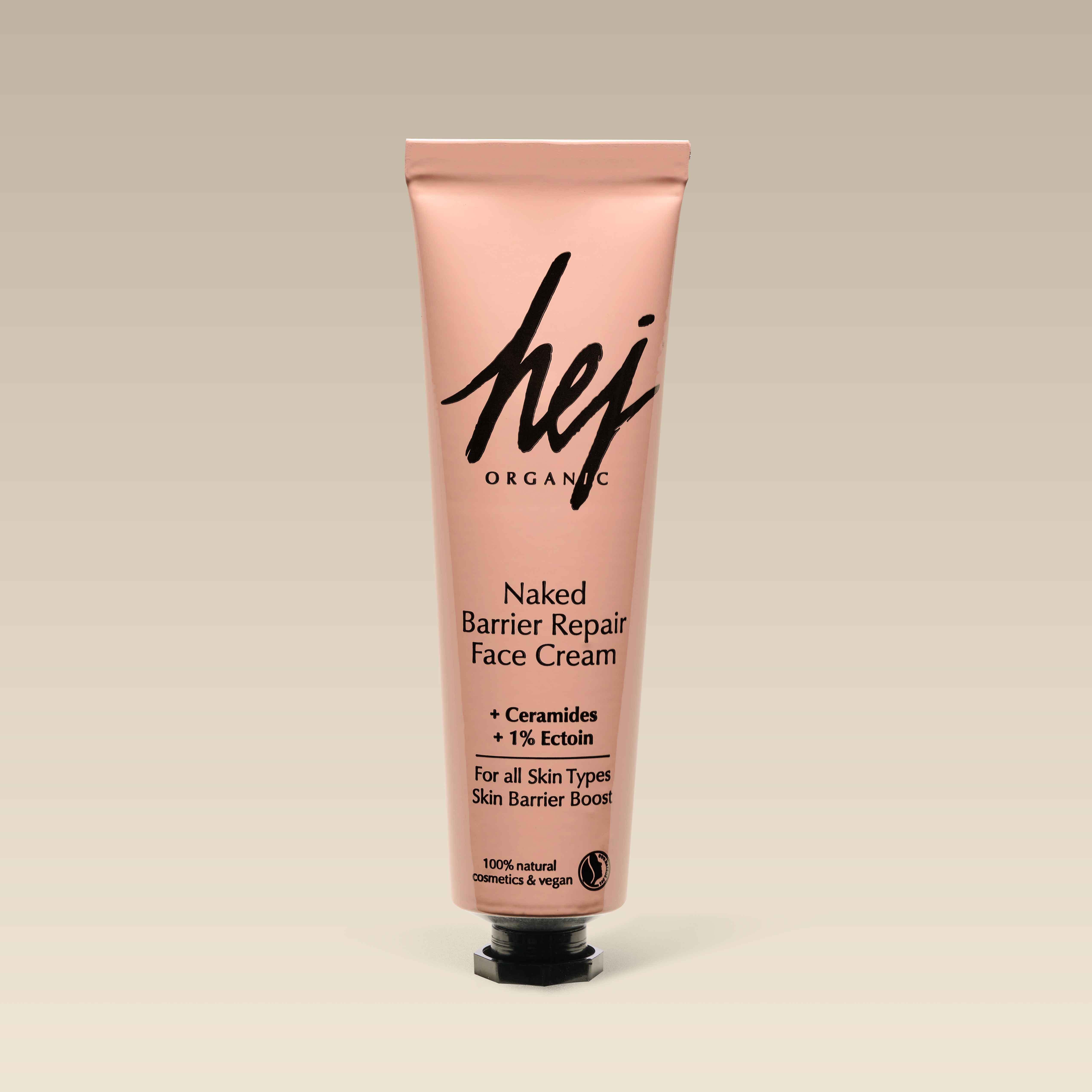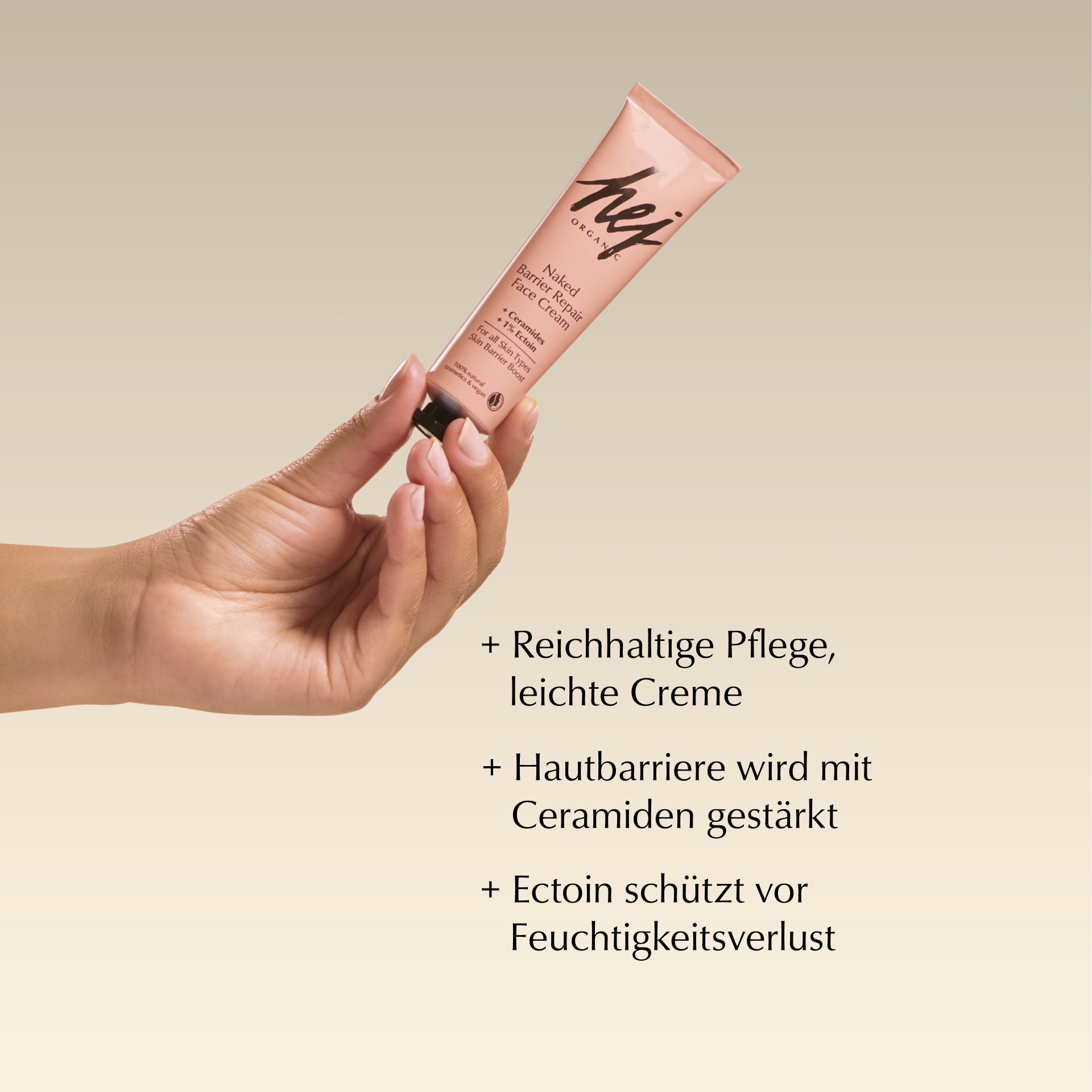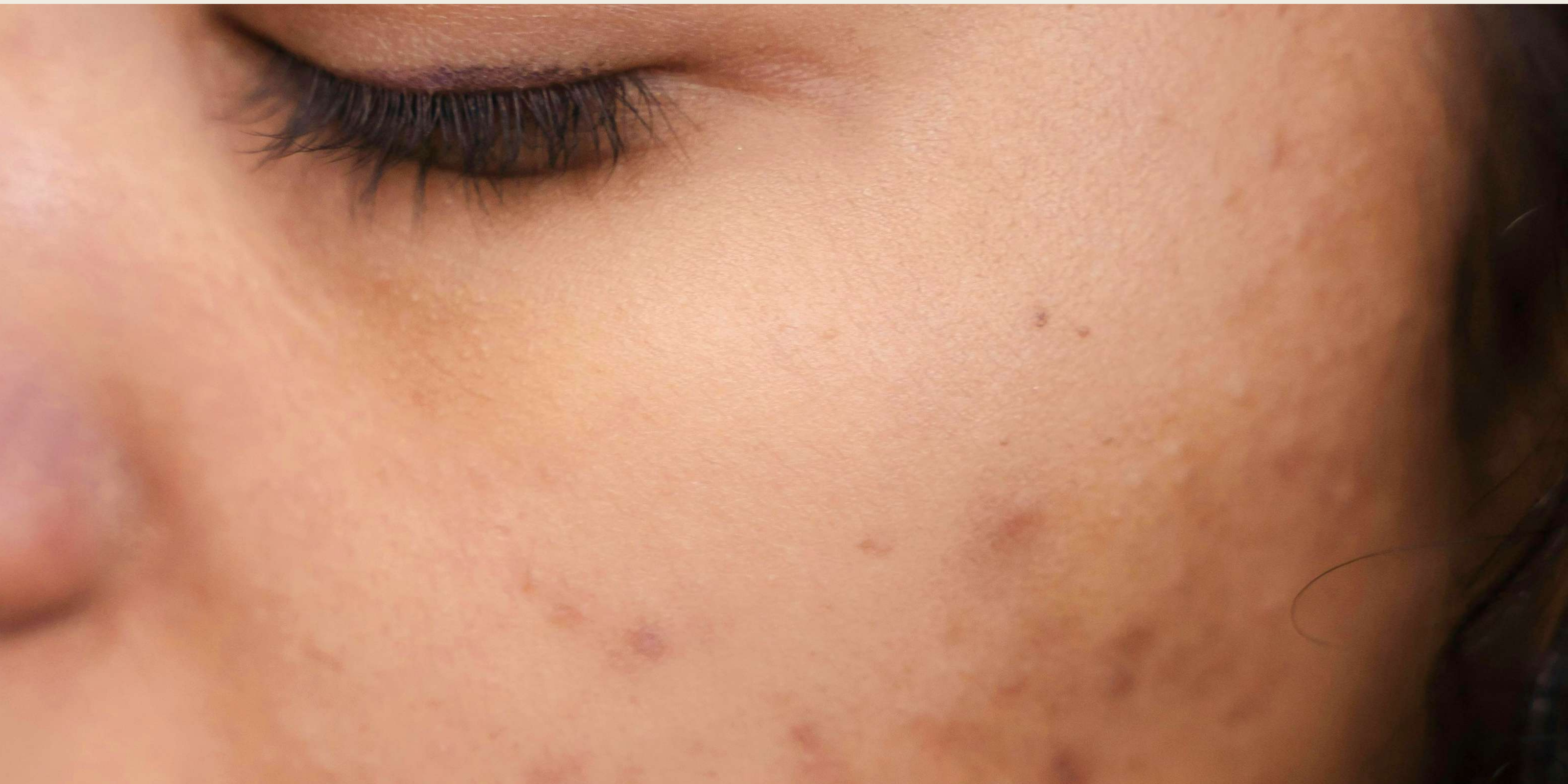
skin diagnosis
What is meant by impure skin?
Understanding Skin Condition
Impure skin refers to skin that is characterized by irregularities such as pimples, blackheads, inflammation or excessive sebum production. It can be caused by various factors such as hormonal changes, stress, incorrect skin care or even genetic predisposition. It is often more prone to acne or skin impurities.
The right care for impure skin
cleaning
Mild cleansing products thoroughly remove sebum, dirt and makeup without drying out the skin. It is important to look for products that preserve the skin's natural pH so as not to disturb the balance and avoid excessive sebum production.
peeling
Chemical peels with BHA (salicylic acid) or AHA (e.g. glycolic acid) are particularly effective in combating blackheads and calluses. BHA penetrates deep into the pores to unclog, while AHA gently exfoliates the top layer of skin and makes the skin appear more even.
moisturizer
Regular moisturizing is also important for impure skin to stabilize the skin's appearance and regulate sebum production. Light, non-comedogenic moisturizers provide moisture without clogging the pores.
intensive care
Products with ingredients such as salicylic acid, niacinamide, zinc or tea tree oil have a targeted effect on inflamed skin and excess sebum. Salicylic acid helps to clear the pores, while niacinamide has an anti-inflammatory effect and zinc and tea tree oil fight bacteria and reduce inflammation.
sun protection
Using a light sunscreen protects the skin from UV rays, which can increase inflammation and promote scarring, making sun protection an essential part of your daily skin care routine.
Mild cleansing products thoroughly remove sebum, dirt and makeup without drying out the skin. It is important to look for products that preserve the skin's natural pH so as not to disturb the balance and avoid excessive sebum production.
Chemical peels with BHA (salicylic acid) or AHA (e.g. glycolic acid) are particularly effective in combating blackheads and calluses. BHA penetrates deep into the pores to unclog, while AHA gently exfoliates the top layer of skin and makes the skin appear more even.
Regular moisturizing is also important for impure skin to stabilize the skin's appearance and regulate sebum production. Light, non-comedogenic moisturizers provide moisture without clogging the pores.
Products with ingredients such as salicylic acid, niacinamide, zinc or tea tree oil have a targeted effect on inflamed skin and excess sebum. Salicylic acid helps to clear the pores, while niacinamide has an anti-inflammatory effect and zinc and tea tree oil fight bacteria and reduce inflammation.
Using a light sunscreen protects the skin from UV rays, which can increase inflammation and promote scarring, making sun protection an essential part of your daily skin care routine.
Supporting the skin in everyday life
Nutrition: Reduce sugar and refined carbohydrates, as they can trigger hormonal changes that promote blemishes. Instead, rely on omega-3 fatty acids from foods like salmon and walnuts, which have anti-inflammatory properties and support skin healing.
Antioxidant-rich foods like berries and green vegetables help fight free radicals and regenerate the skin. Probiotic foods like yogurt and sauerkraut strengthen the skin's microbiome and have anti-inflammatory effects. Zinc, found in pumpkin seeds and legumes, supports skin healing. Vitamin A from carrots and sweet potatoes is also important for regenerating the skin and preventing clogged pores. Don't forget to drink plenty of water to keep the skin hydrated.
Hygiene tips: Change your pillowcases regularly, as they accumulate bacteria and sebum. Avoid touching your face with unwashed hands to avoid transferring bacteria. Keep towels and washcloths clean to avoid skin irritation. Also clean your cell phone regularly, as it accumulates a lot of bacteria. And most importantly, remove your makeup thoroughly every night to avoid clogged pores and skin problems.
Causes of impure skin
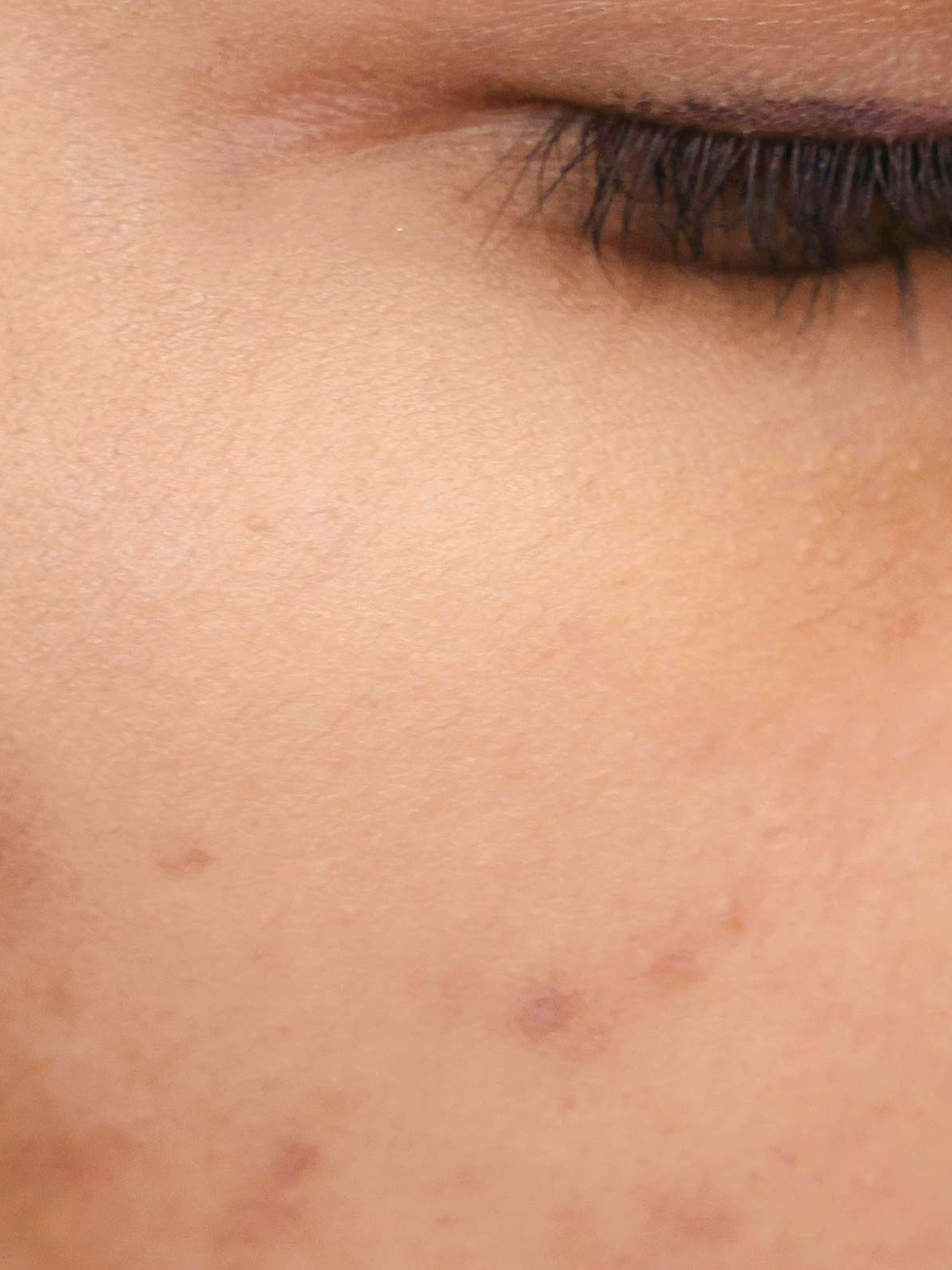
Internal influencing factors
Hormonal changes are often one of the causes of impure skin. They affect sebum production and can lead to clogged pores.
Puberty: Androgens promote sebum production, which often leads to blackheads, pimples and acne.
Pregnancy: Fluctuating hormone levels, especially progesterone, can cause breakouts in the first trimester.
Menopause: A decrease in estrogen and a relative excess of testosterone stimulate the sebaceous glands, often resulting in blemishes in the chin area.
menstrual cycle: Before your period, progesterone levels rise, making your skin oilier and triggering cyclical acne.
The genetic predisposition can also cause a tendency towards impure skin. An inherited higher sebum production increases the risk of acne, while differences in cell renewal promote clogged pores.
The skin type influences the development of impurities. Oily skin tends to have clogged pores due to increased sebum production, while combination skin (oily T-zones and dry cheeks) requires customized care. Dry skin can lead to an irritated skin barrier despite lower sebum production.
In addition, a weakened immune system promote inflammatory skin problems.
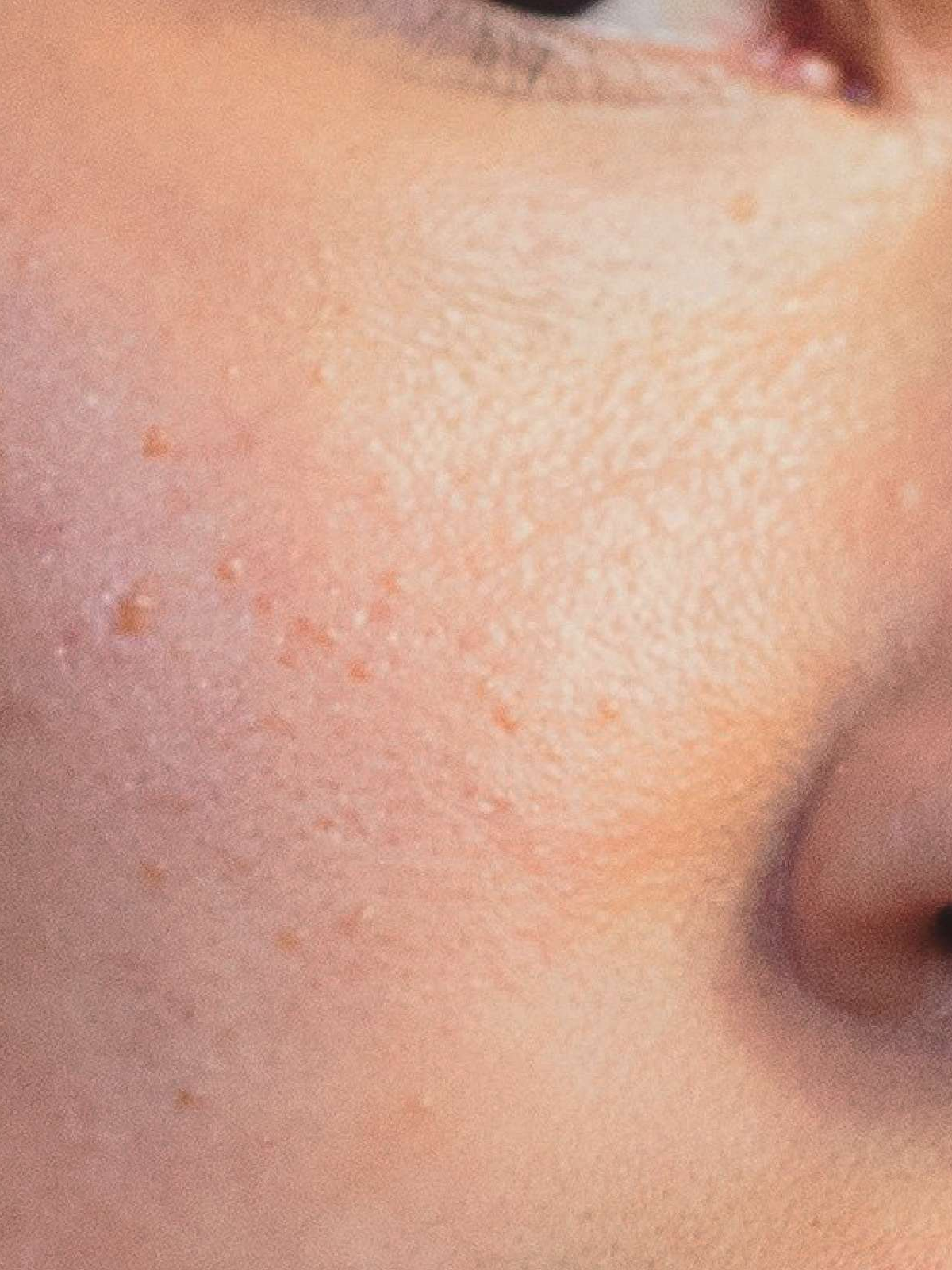
External influencing factors
While internal causes play a role, external influences can also put additional strain on skin health. It is important to recognize these factors and take targeted measures
Pollution: Air pollution, fine dust and chemicals put a strain on the skin, clog pores and promote inflammation. In cities, fine dust particles and heavy metals exacerbate skin problems.
Make up: Comedogenic products and inadequate makeup removal block the pores. Oily or perfumed products in particular can worsen skin irritations.
Stress: Increased cortisol levels stimulate the sebaceous glands and promote inflammation. Scratching due to stress can also damage the skin.
Nutrition: Sugar and carbohydrates increase insulin levels and promote sebum production, which can lead to blemishes. Dairy products contain hormones that can promote acne. Fatty foods increase inflammation and exacerbate skin problems. A balanced, anti-inflammatory diet supports clear skin.
Skin care mistakes: Aggressive cleaning agents or unsuitable products irritate the skin.
Touching the face: Dirt and bacteria are transmitted through frequent touch, which promotes impurities.
A comprehensive skin care routine that supports both internal balance and takes external stresses into account is crucial to improving the skin's appearance and preventing blemishes in the long term.
Internal influencing factors
Hormonal changes are often one of the causes of impure skin. They affect sebum production and can lead to clogged pores.
Puberty: Androgens promote sebum production, which often leads to blackheads, pimples and acne.
Pregnancy: Fluctuating hormone levels, especially progesterone, can cause breakouts in the first trimester.
Menopause: A decrease in estrogen and a relative excess of testosterone stimulate the sebaceous glands, often resulting in blemishes in the chin area.
menstrual cycle: Before your period, progesterone levels rise, making your skin oilier and triggering cyclical acne.
The genetic predisposition can also cause a tendency towards impure skin. An inherited higher sebum production increases the risk of acne, while differences in cell renewal promote clogged pores.
The skin type influences the development of impurities. Oily skin tends to have clogged pores due to increased sebum production, while combination skin (oily T-zones and dry cheeks) requires customized care. Dry skin can lead to an irritated skin barrier despite lower sebum production.
In addition, a weakened immune system promote inflammatory skin problems.
External influencing factors
While internal causes play a role, external influences can also put additional strain on skin health. It is important to recognize these factors and take targeted measures
Pollution: Air pollution, fine dust and chemicals put a strain on the skin, clog pores and promote inflammation. In cities, fine dust particles and heavy metals exacerbate skin problems.
Make up: Comedogenic products and inadequate makeup removal block the pores. Oily or perfumed products in particular can worsen skin irritations.
Stress: Increased cortisol levels stimulate the sebaceous glands and promote inflammation. Scratching due to stress can also damage the skin.
Nutrition: Sugar and carbohydrates increase insulin levels and promote sebum production, which can lead to blemishes. Dairy products contain hormones that can promote acne. Fatty foods increase inflammation and exacerbate skin problems. A balanced, anti-inflammatory diet supports clear skin.
Skin care mistakes: Aggressive cleaning agents or unsuitable products irritate the skin.
Touching the face: Dirt and bacteria are transmitted through frequent touch, which promotes impurities.
A comprehensive skin care routine that supports both internal balance and takes external stresses into account is crucial to improving the skin's appearance and preventing blemishes in the long term.


Recognize common features
The different types of impure skin
Impure skin can manifest itself in various forms.
- blackheads
- Pimple
- Acne and acne-like skin conditions
- Enlarged pores
Open blackheads form when blockages in the pore oxidize and turn black. They usually appear in the T-zone and can be removed with gentle peels or blackhead strips. Closed blackheads are deeper in the skin, not oxidized, and often require products like salicylic acid or retinoids.
Pimples are caused by clogged pores, excess sebum, bacteria and inflammation. They appear as red nodules, pus-filled bumps or deeper nodules. Treatment options include salicylic acid, benzoyl peroxide or retinoids.
Acne varies in severity and cause, from mild blackheads to severe cysts with scarring. Acne-like skin conditions such as rosacea or perioral dermatitis require customized treatments. An accurate diagnosis is important for the right therapy.
Enlarged pores are caused by clogged sebaceous glands and excess sebum. Oily skin is often associated with enlarged pores and impurities. Regular cleansing, mattifying care and gentle peelings help with the treatment.
Frequency of skin blemishes in different phases of life
Impure skin is widespread and affects not only teenagers, but also many adults. Around 85% of teenagers and young adults between the ages of 12 and 24 suffer from acne or impure skin. This is due to hormonal changes that occur during puberty and increase sebum production. Around 40-55% of adults between the ages of 20 and 40 still struggle with impure skin. Hormonal fluctuations (e.g. during menstruation, pregnancy or when taking contraceptives) are a common trigger, especially in women. Older people are also affected. Around 15 to 30% of women and 5% of men over the age of 40 continue to experience skin impurities, which is often associated with hormonal changes or stress.
In adults, the causes of impure skin can also be due to external factors such as environmental pollution, incorrect skin care, unhealthy diet or stress. Impure skin is therefore not a "teenage disease", but a condition that is also common in adulthood.
